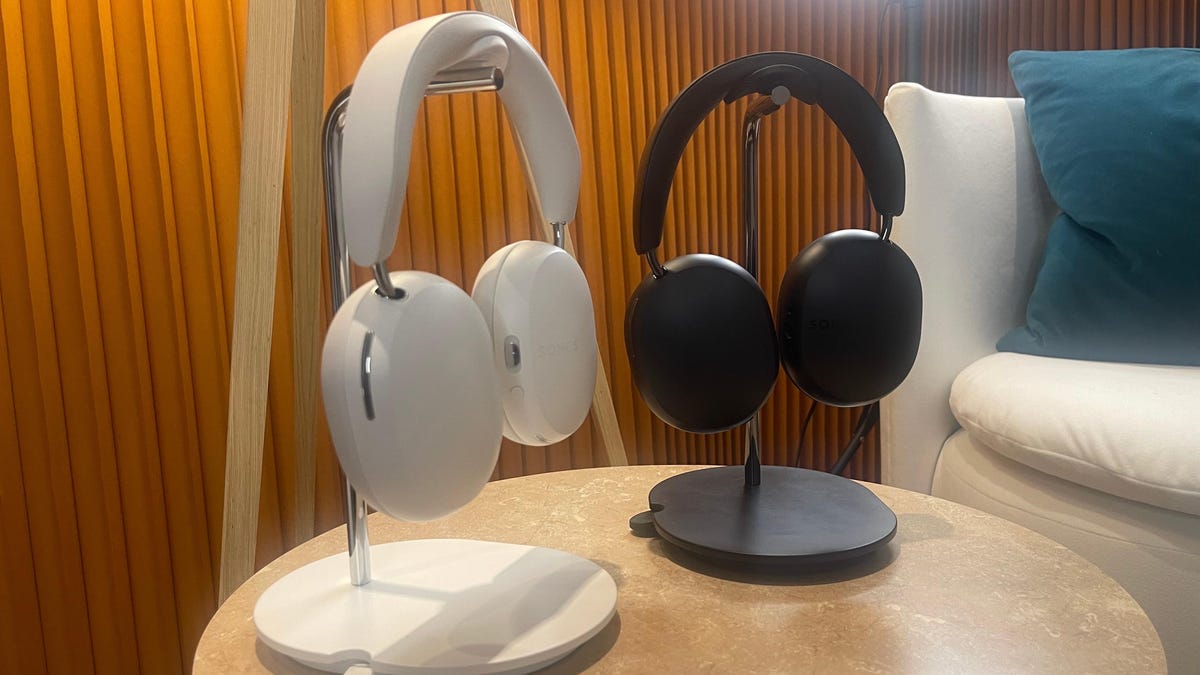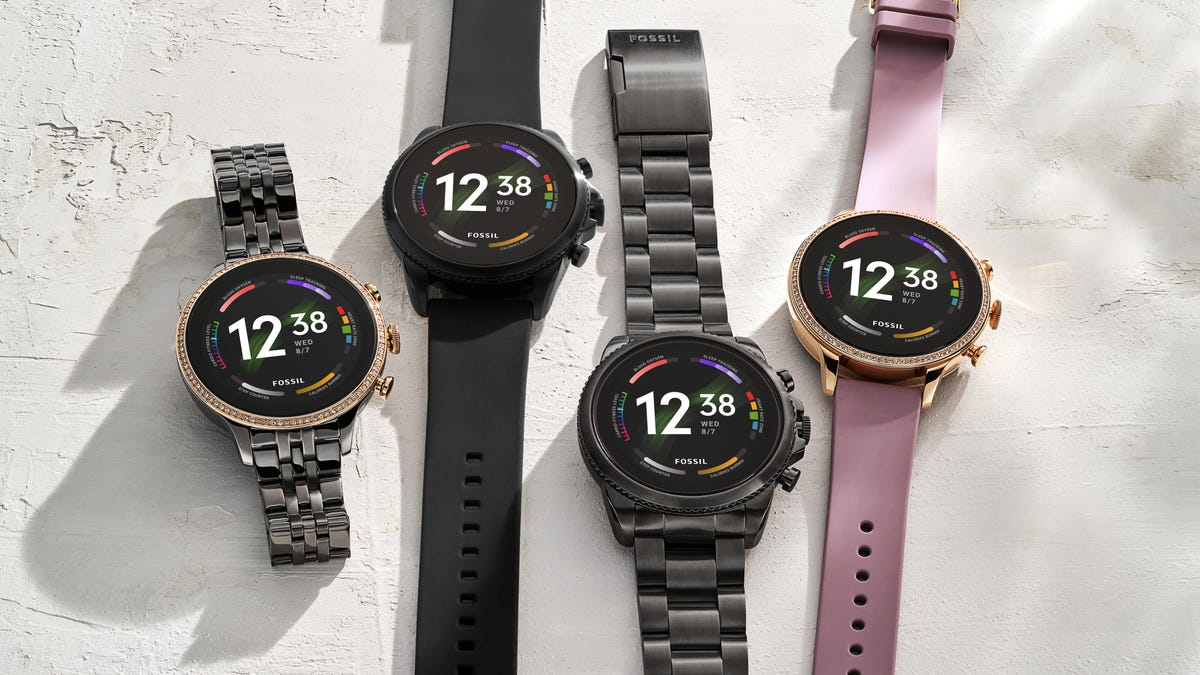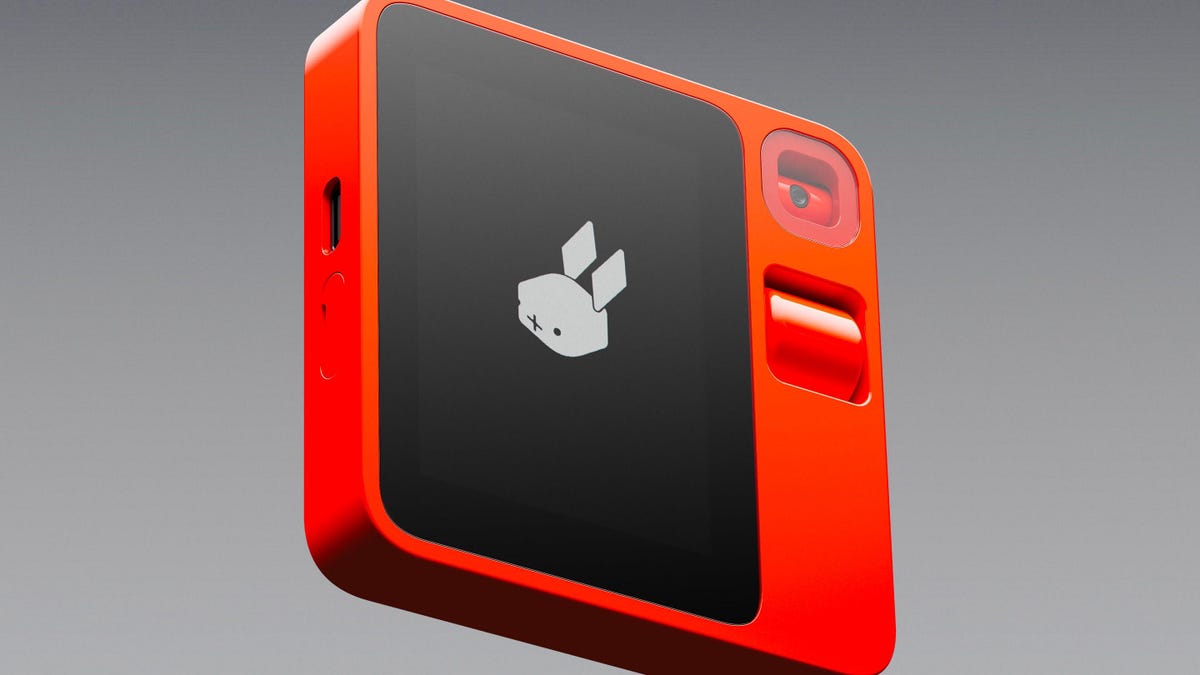Sonos Ace
A great looking and sounding pair of headphones that lack some of the features found on other premium headphones.
$450 is too high for what the Ace currently offers. One of the headphones’ biggest selling points is its audio swap feature, which you can only use if you own the Sonos Arc, a $800 sound bar. According to the company, it will extend support for other sound bars “soon,” but that’s not a convincing enough reason for me to invest half a grand today.
Pros
Eye-catching design
Very comfortable body
Excellent physical controls
Sound is rich and airy
Cons
Audio swap only works with Sonos Arc
No water resistance rating
No voice assistance
ANC is average
Rumors about Sonos releasing its first-ever headphones emerged last year when they acquired the T2 software, a Bluetooth audio startup. That wasn’t the company’s first time trying its hand at headphones. It’s been trying to sneak into the headphone market since 2019 and has created a number of product iterations along the way. However, none of those ever saw the light of day, making the release of Sonos Ace a pretty big deal.
It takes a lot of confidence to price your debut headphones at $450 and put them among players as big as the Apple AirPods Max and Sony WH-1000XM5. The California-based audio company seems inspired by Apple’s flagship headphones and borrowed several design elements. Again, taking a page out of Apple’s book, Sonos also tried its hand at its ecosystem integration, though it’s far too limiting to provide enough value.
Sonos Ace Design
Taking Cues from the AirPods Max
Sonos took a lot of design inspiration from the Cupertino giant’s over-ear headphones. The AirPods Max’s distinct flat, oversized oval earcups with shiny metallic extenders sticking out can also be found on the Ace. However, the memory foam and vegan leather headband differentiate these headphones from the mesh headband on the AirPods Max.
Sonos told us at the briefing that they deliberately gave the Ace an all-plastic body because they didn’t want to bump up its weight by including metal on it. While we’re comparing these to the AirPods Max, the plastic does make it lose some of the appeal of Apple’s metal cans, but at 312g, they’re also considerably lighter than the 384 gram-AirPods Max.
Speaking of which, Sonos prides itself on the Ace’s ‘lightweight body.’ So far, Sony’s flagship headphones, at 250g and featuring one of the most comfortable designs, are the winner in fit and comfort. The Ace’s weight is far from the XM5s, but the generous cushioning in the headband and the earcups make them very comfortable to wear. I wore these for a couple of hours daily for over a week and felt no ear/head fatigue. Usually, I yank my headphones off when I get home after a long day of wearing them, but I didn’t feel the need to do that with the Ace.
I wish the extenders offered more range, though. They felt loose on my tiny noggin and would often slide on my head when I leaned back to drink water from my bottle. I had to remove them and put them on again a handful of times.
The metal extenders work precisely as intended because of their ability not to pull at your hair. This was a big issue on JBL’s Live 770NC, and it was one of the reasons why I had to stop using it. The memory foam earcups are magnetic, making them easily removable and swappable. Looking at how fast I managed to get a concealer stain on the sparkling white cups, I liked having the option to pull them out and properly wipe them clean.
The Controls on the Sonos Ace are Thankfully, Just Buttons
Call me old-fashioned, but touch controls don’t even come close to the response and feedback buttons can achieve. I immediately become a fan of any headphones I see physical controls on. The Ace sports one slider button or the Control Key handles playback, volume, and audio swap (more on later). It can be pressed once to play/pause and slid to its two sides for raising/lowering volume. I think of volume as a sliding scale, so this control felt intuitive and easy to use.
The same cup sports an ANC button that cycles between noise cancelation and ambient mode. I liked having a dedicated ANC button but preferred more tactility. It felt loose, and often, I wasn’t sure if my press was registered. I felt the same way about the power/pairing button on the other cup. It lacked a solid response and, often, didn’t even produce a sound upon acknowledging my action.
Sonos Ace Sound
The Sonos Ace Sounds Good and Cancels Noise Fairly Decently
The Ace offers a bright, spacious soundscape. The mids have lots of space, and the highs are particularly airy. The treble sounds rich, clear, and sharp. The overall sound profile leans more towards tinny. I like how crisp my music and podcasts sounded on these. I wouldn’t call this bass-heavy like the Sony Ult Wear. The low-end doesn’t carry that oomph.
I listened to a lot of WVFRM at the Subway station and on the trains. While it did cancel noise enough for me to hear the podcast hosts clearly, it didn’t silence every sound for me. And I’m talking about this low-end rumble, which is much easier to mute than high-end noises. I could still hear the sound of the train engine on the track opposite mine.
The ANC was sufficiently good to fulfill my noise canceling needs in almost every place I tested: Subway, Laundromat, Trader Joe’s. But it doesn’t scream $450 ANC. Sony still does better ANC on the XM5s for $400.
Sonos claims the Ace lasts 30 hours with ANC and 25% more when ANC is disabled. I spent a week using these, switching between ANC on/off depending on where I was, and the headphones lasted just under 30 hours in that time.
The Sonos Ace Doesn’t Provide Enough Ecosystem Integration
One of the biggest selling points of these headphones is their audio swap feature. Press and hold the Control Key to seamlessly swap audio between the Ace and the Sonos Arc soundbar. The issue is that it only works with the Arc, and limiting your vertical integration to an $800 soundbar is not cool. The $360 Era 300 is one of the company’s most popular speakers, and it would’ve greatly benefitted from the feature. It’s one thing to make a walled garden around your services; Apple always does that with its products. But it’s crucial to be smart about it. The current integration doesn’t provide enough value to be the product’s USP.
Like every other half-baked product released this year, the Ace is also unfinished regarding integration. In an email sent later, Sonos mentioned the Ace will “soon” be rolling out support for its Beam (both Gen 1 and Gen 2) and Ray soundbars.
The swapping is seamless and instant. It also features Dolby Atmos with head tracking.
Speaking of an unfinished product, voice assistance is another feature that doesn’t exist on the Ace but is promised for the future, though this one is less of a deal breaker. There’s also no water resistance rating on these, so I wouldn’t be too confident using them around a pool or in the gym. I was told they’ve been tested against water several times, though.
Wear detection on the Ace pauses your music as soon as you take them off and resumes it when you put them back on. Multi-point connectivity allows you to connect these to up to two devices. In terms of wireless connectivity, you’re limited to Bluetooth only since these don’t feature Wi-Fi. I’m happy about a 3.5mm to Type-C cable in the package, though. That’ll be very helpful on long flights.
Oh, and they don’t fold. They lie flat in their big hard-shell zippered carry case. I discussed this with the product team and was told it was done intentionally. It learned that consumers prefer non-foldable headphones that can lie flat in their cases so they stack up well against their laptops, iPads, or other flat devices in their backpacks.
Verdict
The Sonos Ace is Too Pricey
All in all, I find the $450 tag on the Ace too high. Considering one of the main selling points—ecosystem integration—is limited to just one super expensive sound bar, there’s no water resistance rating, Wi-Fi connectivity, or voice assistance, I don’t see myself paying such a high price for the absence of multiple premium features you’d find on its competitors. The ANC wasn’t terrible, but it didn’t impress me. I was a fan of the controls and the comfortable body with removable earcups, but I would like more functionality out of a pair of headphones I’m investing around half a grand in.








